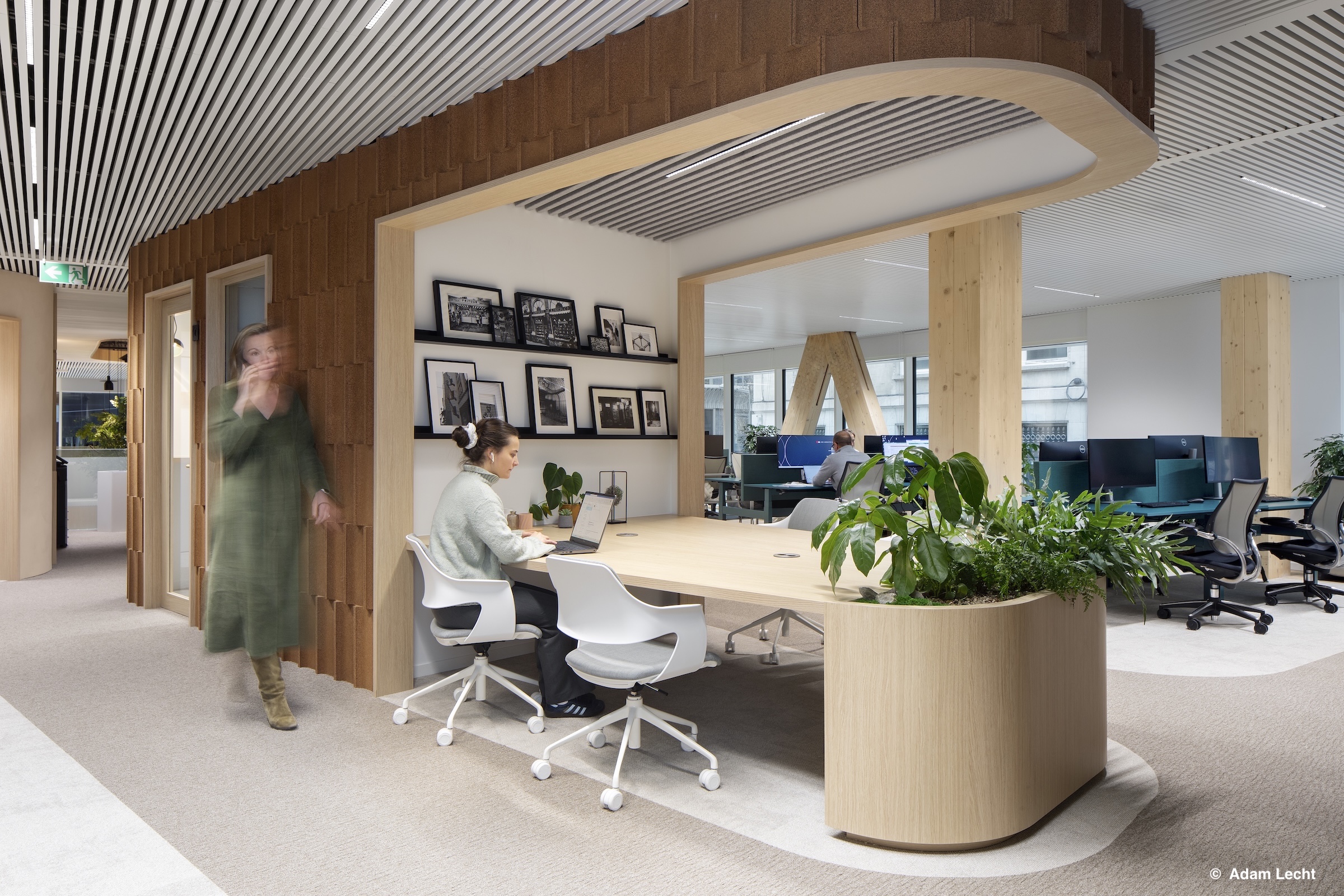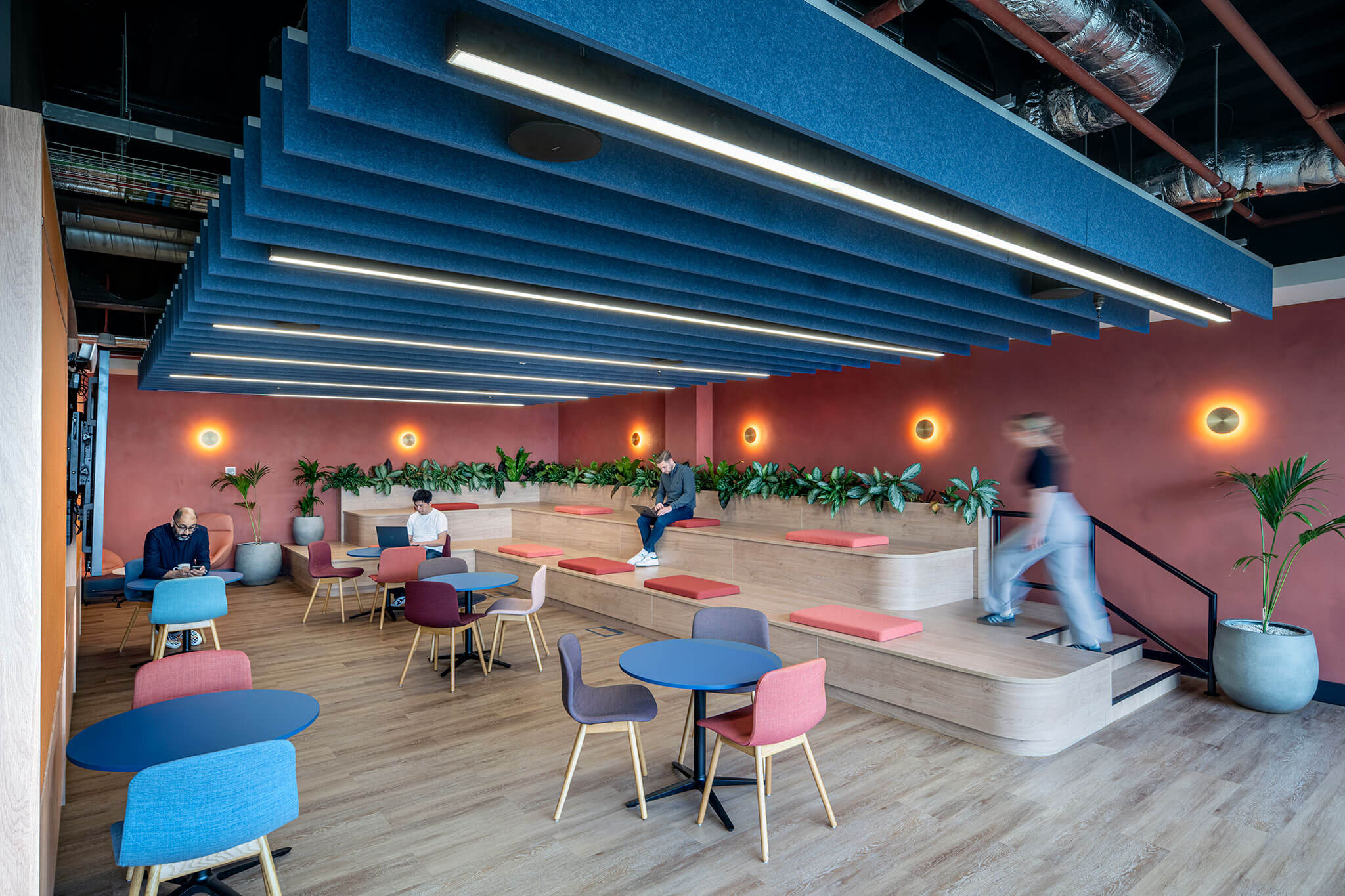Life sciences have experienced tremendous growth in the last few years. The pandemic drove the requirement for medical advancements, while continued need for improved therapies and technologies have drawn significant investment into the industry.
“As numerous factors drive the life sciences sector forward, its real estate demands have also grown and evolved, leading a shift away from traditional laboratories and locations,” says Stephanie Bonduelle, Client Brand and Development Director at Tétris.
The EMEA Life Sciences Cluster Outlook report by JLL illuminates the trends shaping the industry and its workspace requirements. Here are five key findings:
01. Life sciences will continue thriving
Although global challenges in 2022 disrupted growth, costs, supply chains and the ability to plan, the life sciences sector experienced overall expansion against this backdrop of economic uncertainty.
Unprecedented capital investment into life sciences in 2021 has yet to be fully spent, which will fuel continued growth this year. “Science doesn’t stop. With a steady influx of investor capital, high demand for medical advancement, and key real estate projects in the pipeline, the life sciences sector has a strong foundation for sustained growth,” says Andy Glasspool, Head of Life Sciences Accounts at JLL.
02. High demand will drive real estate repurposing and development
Investors are eyeing opportunities to create workplaces that suit life sciences. Despite nearly $55 billion in real estate capital destined for Europe, some key markets still lack suitable laboratory stock. Meanwhile, as life sciences businesses grow and new firms emerge, there’s increasing demand for lab-friendly workplaces that meet rigorous technical requirements.
“This demand and supply imbalance is driving up rents and values, and limiting opportunities for investors and occupiers,” says Glasspool. “We’re seeing a rise in investment to create new stock – not only through new developments but in repurposing projects that convert underutilised commercial spaces.”
03. Life sciences are clustering in the city
Life sciences companies want workspace near like-minded businesses – and clusters are increasingly forming in cities rather than out-of-town science parks.
“Life sciences continue to mature and grow in cities across Europe. These clusters present major opportunities for the development of purpose-built lab facilities, which can be limited even in advanced markets such as London,” says Bonduelle.
With strong industry ecosystems and plenty of life sciences developments in the pipeline, established clusters such as those in Amsterdam and Munich are set for rapid growth. Emerging markets such as Manchester, Lyon and Leiden offer varying strengths and science specialisms that are attracting occupiers and investors.
04. The industry wants sustainable, human-centric workplaces
Life sciences companies are moving away from sterile lab settings in favour of amenity-driven workplaces that help meet sustainability and wellbeing goals.
“Companies are increasingly looking at their real estate and operating procedures as a way to cut overall emissions,” says Bonduelle. “At the same time, as the sector vies for top talent, firms seek not only high-quality lab facilities but sustainable workspace that supports wellbeing, hybrid working and a positive employee experience.”
Smart building technology will play a critical role. 66% of life sciences organisations plan to introduce sustainability technologies to improve environmental performance, while 54% will adopt coworking and flexible space management software*.
*JLL Future of Work Survey, Healthcare & Life Sciences Report
05. Partnerships grow the industry
Investors are collaborating with developers, corporates and academic institutions to share knowledge and create spaces suited for life sciences. Meanwhile, as life sciences companies seek to maximise value from their real estate, they’ll look to external expertise to manage data analytics, health and wellbeing services, workplace operations, and renewable energy supply.
“Such cross-specialism partnerships have emerged as a key way for organisations to enhance their existing real estate and workforce skills,” says Bonduelle. After a period of rapid change in the industry, corporate leaders have a heightened focus on how their real estate can best align with business priorities.
As the life sciences sector continues to thrive in Europe, it’s driving an evolution in real estate needs. To dive deeper, download the EMEA Life Sciences Outlook 2023 report from JLL.

View the full report



